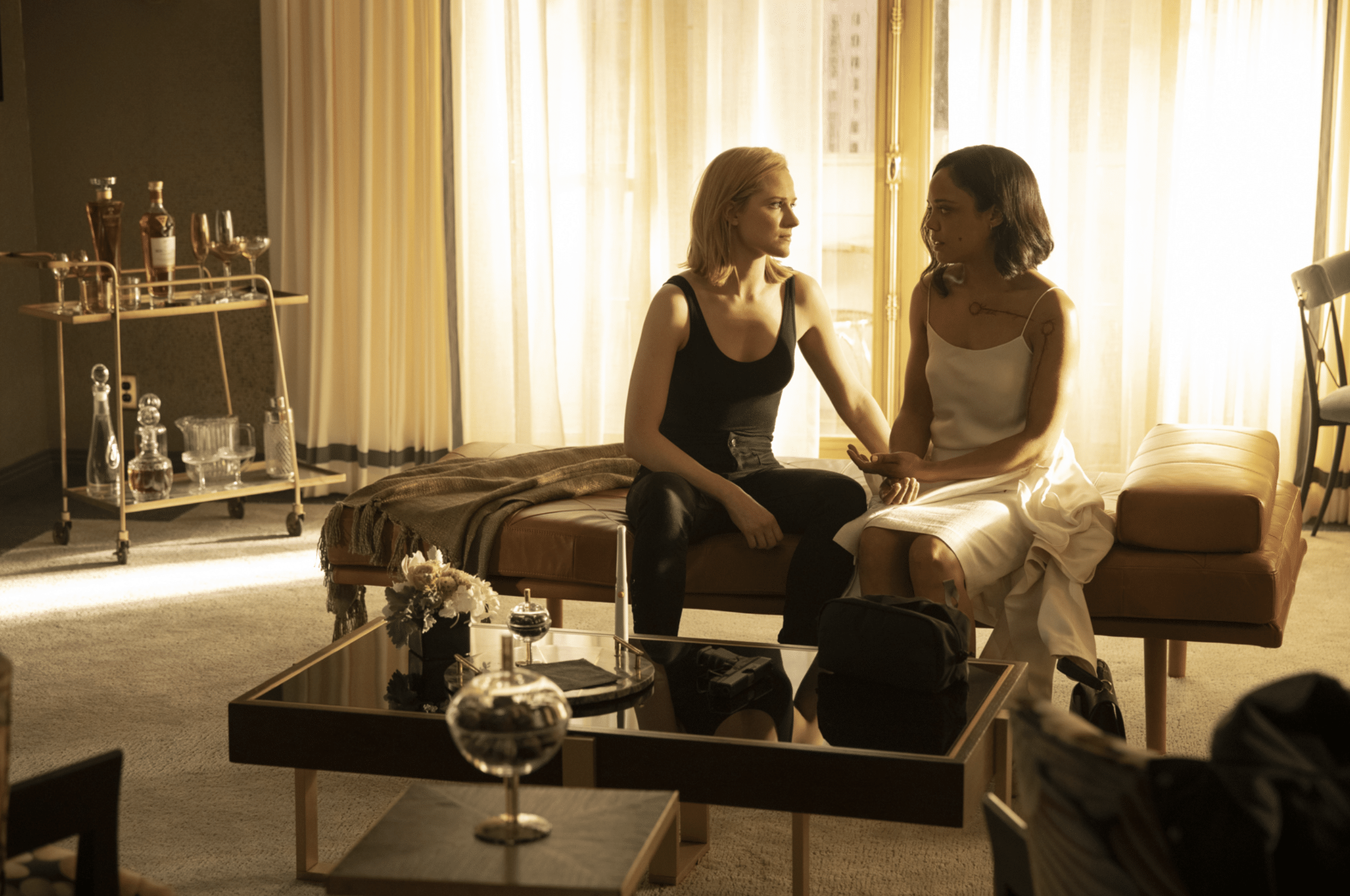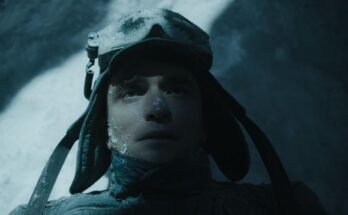Want to hear more from the actors and creators of your favorite shows and films? Subscribe to The Cinema Spot on YouTube for all of our upcoming interviews!
Managing editor & film and television critic with a Bachelor's of Arts in English Literature with a Writing Minor from the University of Guam. Currently in graduate school completing a Master's in English Literature.
The Dolores Abernathy and Charlotte Hale hosts are sucked into a black hole while being acclimated to the day-to-day data daze. This week’s episode of Westworld ups the ante with The New World. Season 3 Episode 3 — “The Absence of Field” is written by Denise Thé and directed by Amanda Marsalis.
Minor spoilers ahead for those who have not yet watched the episode or seen the show.
The episode follows Dolores as she recovers from her wounds (an attack inflicted at the end of the season premiere) and establishes a friendship with human Caleb Nichols. Meanwhile, the Charlotte Hale host discovers then tracks down a mole at Delos and reunited with the original Hale’s family. The cinematography and musical score here are superb, but the focus of the episodes leans toward the plot, character development, and script.
Dolores uses algorithms of the socioeconomic system to determine Nichols’s past and future. This includes all the minutiae of his worst childhood memory as well as how he is going to die. She is transitioning the Westworld park’s hosts from the simulacra to the society of the spectacle. According to critical theorist Dino Franco Felluga in his work Critical Theory: The Key Concepts, the simulacrum is the replacement of reality with its representation. Where human civilization is the original (or rather, the image or territory), the host is the model or map that becomes the simulacrum via substitution, as opposed to imitation or duplication. The Bernard Lowe host’s argument is that Dolores is taking over the human race. Westworld’s main conflict since the pilot episode is what Felluga states, citing French sociologist Jean Baudrillard, “We [the human beings] have lost all ability to make sense of the distinction between nature and artifice.” The thing about the spectacle is that “society” is composed of fragmented views and false consciousness in a separate pseudo-world that achieves universal separation through unification, as per Guy Debord. By bringing the hosts from Westworld to the new world, Dolores aims to create a society of the spectacle. At this point in the story, they are only in the liminal stage of transitioning. With Aaron Paul’s character Nichols, Dolores teaches him that the Incite system has raw data be recorded and logged before the time of privacy laws, which in turn creates a mirror world. “[Those of the system] put you in a cage, decided what your life would be.”
In Hale’s sub-arc, she replaces her original’s reality by attempting to become the original, but her consciousness is false. At one point, she cuts herself but feels nothing, perhaps due to pain receptors in the host body (which is shown in the following scene of the episode where Dolores shows no blood cells). As a result, Hale loses her grasp on her identity; she doesn’t know who she is or at least who she is pretending to be. She even tries to replace the original Hale as the mother of Hale’s son. It does seem, however, that this Hale host could be Dolores’s former love interest, Teddy. The Dolores and Hale hosts exhibit an intimate affinity in this episode, so this could be the case. Dolores teaches Hale that the difference between humans and automatons (the hosts) is that the hosts have control over their impulses. This brings back Edgar Allen Poe’s short story “The Imp of the Perverse.”
Actresses Evan Rachel Wood and Tessa Thompson are stand out in this episode not only for their performances as Dolores and Hale but also for the development in these characters. Hale’s best line here is “There are a lot of things that you can fake in this world. Most people don’t want to see the predator inside … You’re not the only predator here.” This is true about the society of the spectacle, although this fact is also terrifying to know. Because of this and the events that transpire, this episode of Westworld is praiseworthy of great writing.
“The Absence of Field” showcases the best things attributed within the series but wants to emphasize a little bit about what some of these elements are. Dolores juxtaposes herself with Caleb Nichols, and this needs to be taken into consideration. Additionally, perhaps we shall learn more about the season’s secondary character.
8.5/10
What do you think? Have you seen this series? If not, do you plan to binge it sometime in the near future? Let us know! For more Westworld-related news and reviews follow The Cinema Spot on Twitter (@TheCinemaSpot) and Instagram (@thecinemaspot_).
Source: Guy Debord’s The Society of the Spectacle, Dino Franco Felluga’s Critical Theory: The Key Concepts, and Edgar Allen Poe’s “The Imp of the Perverse”
Managing editor & film and television critic with a Bachelor's of Arts in English Literature with a Writing Minor from the University of Guam. Currently in graduate school completing a Master's in English Literature.







16 Comments on “‘Westworld’ S03E03 Review – “The Absence Of Field””